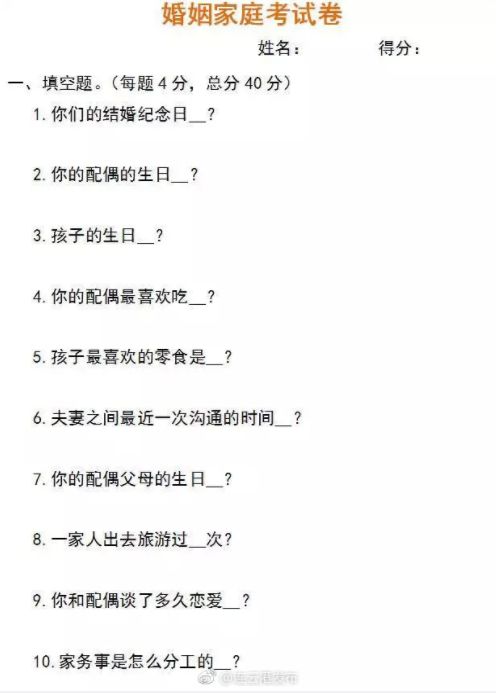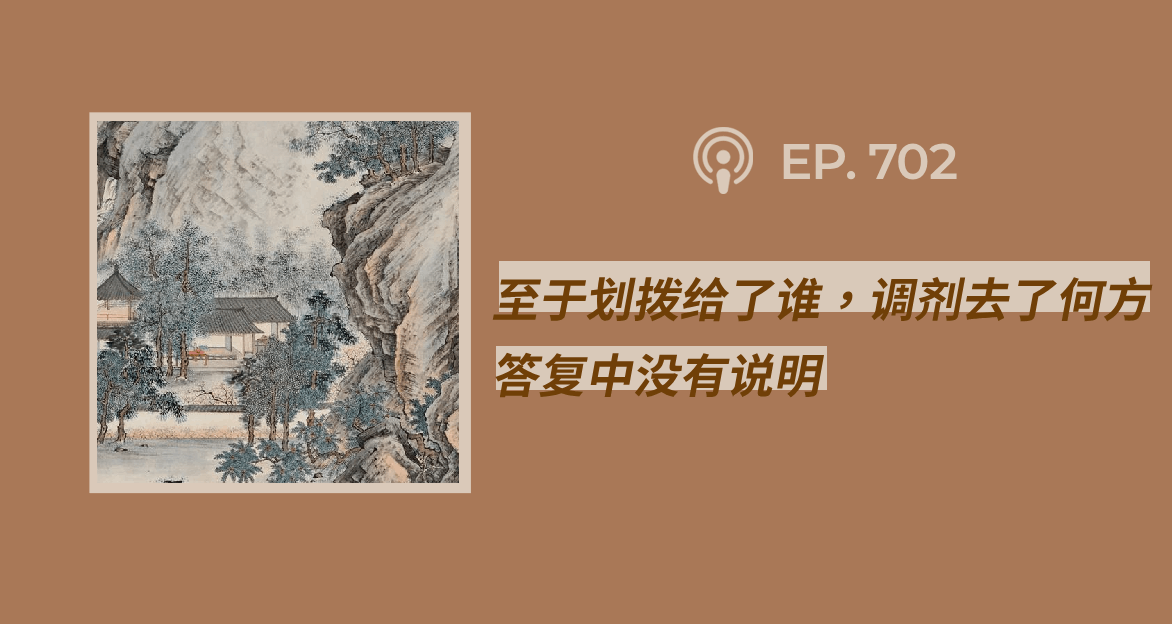Chinese province introduces ‘divorce test’ for couples planning to splitThe Jiangsu test includes questions such as ‘What is your partner’s favourite food?’ to gauge if the relationship is truly over.
“What is the best memory between you and your partner?”; “How many times have you travelled together?”; “What is your partner’s favourite food?”; “What is your child’s favourite snack?”
“你和你的伴侣之间最美好的记忆是什么?”“你们一起出去旅行多少次?”“你的伴侣最喜欢吃什么?”“你们孩子最喜欢的零食是什么?”
These are some of the questions in a “divorce test” introduced last week by a civil affairs department in China’s eastern Jiangsu province for couples applying to end their marriages, one of many government measures brought in to stem the rising tide of divorces in the country.
这是上周华东省份江苏一民政部门为申请离婚的夫妇做的“离婚测试”,这是政府为了遏制国家离婚率上升而采取的措施之一。
Couples who score above 60 on the exam, which also asks for the dates of anniversaries and birthdays, still “have hope”, according to a post by the Lianyuwang city government on Weibo. Those who score below can conclude their marriage is “about to break.”
连云港市政府官微说,如果夫妇得分60分以上,就表示还有希望,问题包括说出结婚纪念日和对方生日。那些不及格的可以得出结论,他们的婚姻“要破裂了”。
“The aim is to let both sides understand themselves, and the other side, and recall little moments in their marriage,” the department said, according to the state-run news outlet Global Times.
《环球时报》引用当地官员的话说,“目标是让双方了解自己,了解另一半,回忆起婚姻中的点点滴滴。”
For more than a decade, divorce rates in China have been rising. Last year, 3.4 million Chinese couples filed for divorce, an increase of 8% from the year before, according to the ministry of civil affairs. In 1995 just over one million couples divorced, after new laws made it easier to separate. In 1979, only 319,000 Chinese couples registered for divorce.
十多年来,中国离婚率一直在上升。民政部数据显示,去年,340万中国夫妇申请离婚,比上年增长8%。1995年,当时新离婚法让离婚更容易,只有一百多万夫妻离婚。1979年,只有31.9万中国夫妻登记离婚。
Chinese authorities have been trying to stop the trend, caused by a combination of factors including the increasing financial independence of Chinese women and growing intolerance of domestic violence and extramarital affairs.
中国政府希望遏制这种趋势,离婚的原因既有中国女性经济日益独立,也有她们越来越难以忍受家庭暴力和婚外情。
President Xi Jinping in 2016 called families the “cells of society” and called on all Chinese to “promote fine family culture.” China’s supreme court that year urged courts handling divorce petitions to distinguish when couples are in a state of “marital crisis” or “marital death” and to try to save marriages when possible.
2016年,习近平将家庭称为“社会的细胞”,呼吁所有中国人建设“良好的家庭文化”。当年,中国最高法院要求法院处理离婚申请时,区分夫妻是“婚姻危机”还是“婚姻死亡”,想尽可能拯救婚姻。
Several courts have required couples who wish to divorce to first observe a three-month “cooling off” period before finalising their separation. In Guangdong province, couples have to attend mediation classes.
一些法庭要求想离婚的夫妇先遵守三个月“冷静期”,然后才同意分手。在广东省,夫妇还要参加斡旋班。
After criticism online of the divorce test, the department in Lianyuwang clarified that the exam is purely voluntary. The department told local media most couples had refused to take the test. The three that did take the test continued to register their divorce.
离婚考试遭到网民批评后,连云港民政部门表示考试纯属自愿,并对当地媒体说,大部分夫妇拒绝参加考试。三对参加了考试的夫妇最后还是离了婚。
After internet users said a test before getting married might be more useful, the department began offering a voluntary “marriage examination” of 10 questions, and free marriage counselling.
有网民表示结婚前考试可能更有用,当地民政部门又开始推行自愿参加的“结婚测试”,有10个问题,还免费提供婚姻咨询。
















